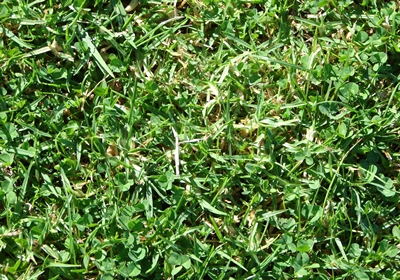 Kikuyu is a grass species which prompts strong reactions, both positive and negative with many people happy to ‘kik-yu’ out the door for suggesting it has its merits!
Kikuyu is a grass species which prompts strong reactions, both positive and negative with many people happy to ‘kik-yu’ out the door for suggesting it has its merits!
But, during this long, dry season it is easy to see its positive attributes, especially in sandy areas.
That’s because any green patches seen are likely to be kikuyu (pennisetum clandestinum), which can make do with only light rain and summer dew to grow.
And, following Yates’ release of a new kikuyu-based lawn seed mix, which is proving particularly useful for coastal sections, many Kiwis are starting to believe their grass really can be greener.
A plant which has all the attributes of a rampant weed, clearly kikuyu, in the right place, and with the right management, can be extremely useful.
The use of kikuyu, for lawns, recreation areas, parks and sports fields has become increasingly important and, as with pasture, there are management techniques which turn this potential plant pest into a practical, hard-wearing surface.
Staying green through summer with minimal irrigation required and under-sown with ryegrass to keep a vigorous surface through winter, 40%o of the recreational areas in greater Auckland are now kikuyu-based.
Native to the African countries of Burundi, Zaire, Ethiopia, Kenya, Rwanda, Tanzania and Uganda, kikuyu is named for the Kikuyu (Gikuyu) people of Kenya.
It was introduced to New Zealand from Zimbabwe by the Department of Agriculture in the early 1920s. Trials were conducted at Albany and Purewa where growth was so impressive cuttings were distributed throughout the northern North Island.
Establishing easily from stolon cuttings, it also spreads via rhizomes and seeds. Cattle spread kikuyu, as their dung can be full of viable seed, which germinates rapidly.
As a pasture species, kikuyu proved to be a mixed blessing with one person from the early 1960s, summing up the negative aspects with these words:
“Almost everyone in Northland hates kikuyu – farmers, because it has poor feed value and crowds out better pasture species; orchardists, because it can climb up and partially smother trees; gardeners, because it can invade lawns and gardens. Being a drought-resistant perennial, it is hard to eradicate. Fast-growing in summer but mostly winter-dormant, it can cause severe feed shortages in spring.”
However, 1960s research on established best-practice routines has allowed Northland farmers to utilise kikuyu as a productive pasture species for drystock and dairying.
The main management tools are:
Intensive subdivision
Mowing surplus growth especially in the autumn
Optimum fertiliser programmes
Under-sowing with clovers and winter growing (rye) grasses.
The Northland-based Kikuyu Action Group is still researching and disseminating information to farmers.
On the positive benefits of kikuyu it has been said that, “kikuyu is an exceptionally good coloniser of raw sand country, which is liable to dry out in summer. Established kikuyu increases the moisture retained in the top layer of sand, assisting the survival of clovers.”
Many of our larger coastal farms graze beef cattle extensively and there are some productive dairy farms with kikuyu as the ‘backbone’ of their grass production
It is recommended that kikuyu lawns should be established between November and March, with a minimum temperature of 15degrees C required for germination and growth, so there’s still time to sow, thanks to this year’s Indian summer.
Contributed by Anna McNaughton.










